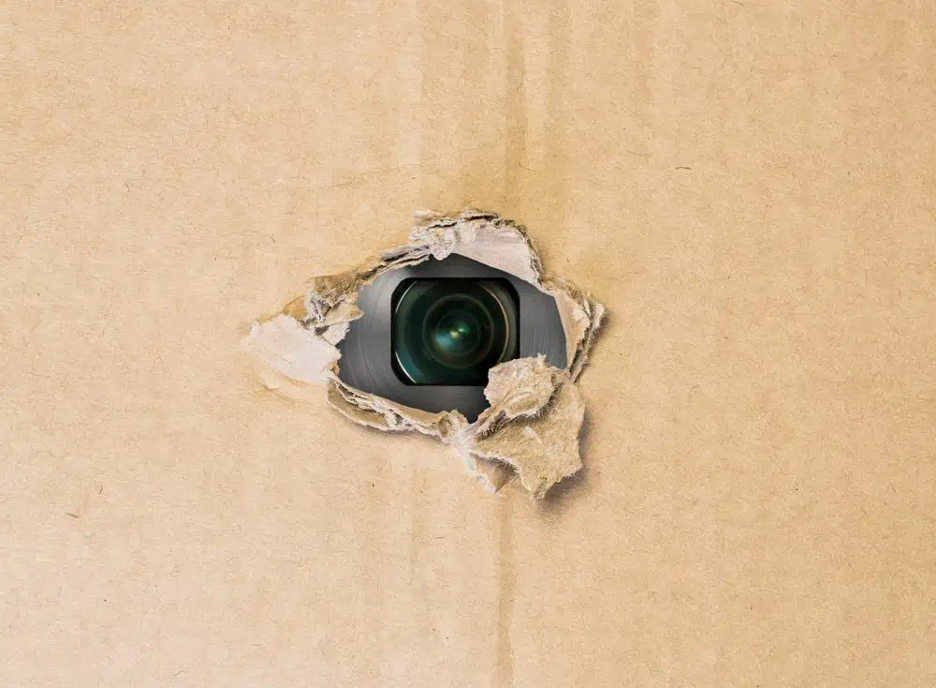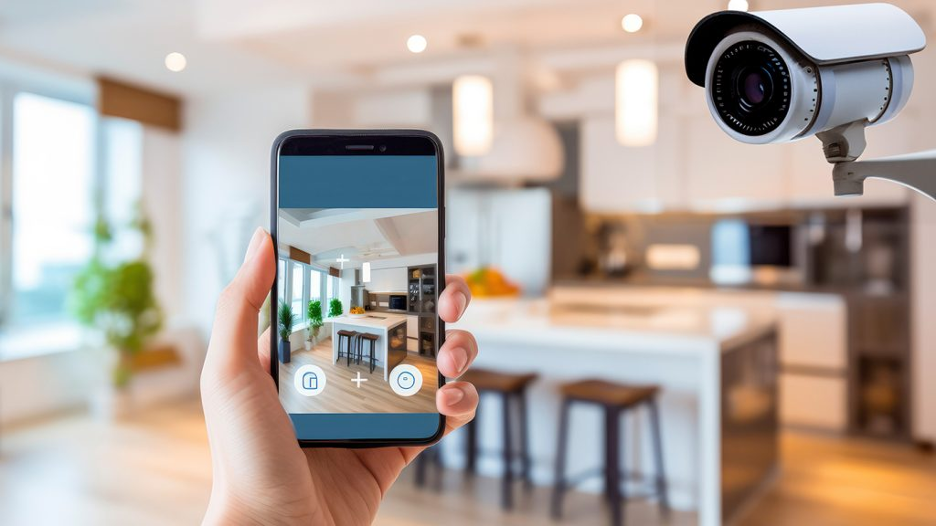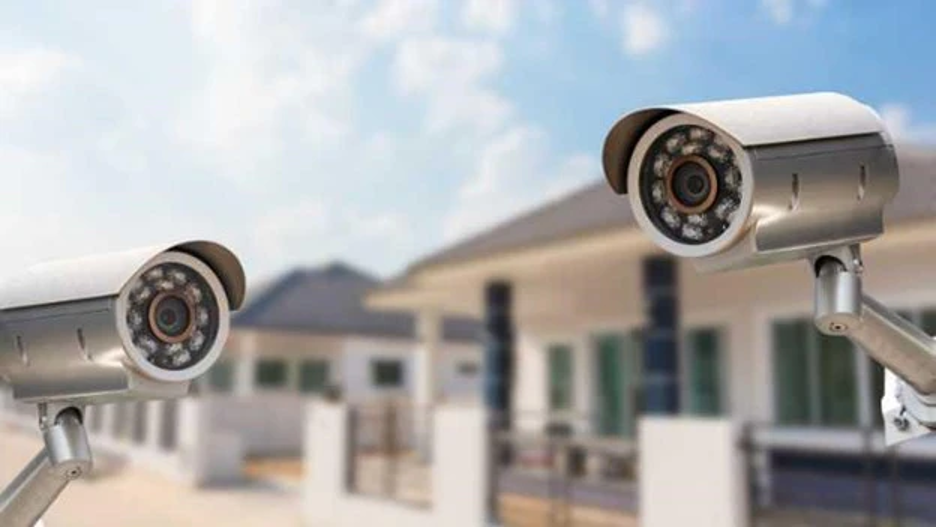According to a report by Statista, the global market for smart home security cameras is expected to surpass $11 billion by 2025. These devices offer a sense of safety, but they also raise important legal and ethical questions about privacy. Can you legally install cameras in your home? Are there limitations on where you can place them? Understanding privacy laws related to home surveillance is crucial to avoid potential legal troubles. This article explores the legality of installing cameras in your home, focusing on privacy laws, ethical considerations, and practical advice for responsible surveillance.
Understanding the Basics: What Does the Law Say?
Federal Laws in the United States
In the United States, there are no specific federal laws that govern the installation of home security cameras. Instead, legal considerations fall under general privacy laws and state-specific regulations. The Fourth Amendment protects individuals from unlawful surveillance by the government, but it does not apply to private citizens monitoring their own property. However, federal laws like the Video Voyeurism Prevention Act of 2004 prohibit recording in situations where individuals have a reasonable expectation of privacy, such as bathrooms or bedrooms.
State-Specific Regulations
State laws vary widely when it comes to home surveillance. For instance:
- California: Under California Penal Code §632, it is illegal to record conversations without the consent of all parties involved. This law extends to audio recordings captured by security cameras.
- New York: Unlike California, New York only requires one-party consent for audio recordings. However, video recordings in private areas without consent are prohibited.
- Florida: Florida’s laws are similar to New York’s, allowing video surveillance in public or semi-private areas but restricting it in places like bathrooms or bedrooms.
International Perspectives
Outside the U.S., privacy laws differ significantly:
- European Union: The General Data Protection Regulation (GDPR) governs the use of surveillance cameras. Homeowners must inform visitors that they are being recorded and ensure footage is not shared unlawfully.
- United Kingdom: The Data Protection Act of 2018 requires homeowners to justify the use of cameras and limit recording to their property.
- Canada: Under the Personal Information Protection and Electronic Documents Act (PIPEDA), homeowners can install cameras but must not infringe on neighbors’ privacy.

Where Can You Legally Install Cameras in Your Home?
Public Areas Within the Home
It is generally legal to install cameras in common areas of your home, such as:
- Living rooms
- Kitchens
- Hallways
- Driveways
These spaces are not considered private, and individuals within these areas typically do not have a reasonable expectation of privacy.
Private Areas
Private areas like bathrooms and bedrooms are subject to stricter legal and ethical standards. Installing cameras in these spaces is generally prohibited unless you have explicit consent from all individuals who may use these areas. Even with consent, it is essential to consider ethical implications.
Outdoor Surveillance
Installing cameras outside your home is usually permissible. However, you must ensure the cameras do not record areas beyond your property, such as a neighbor’s yard or windows. Many jurisdictions consider this a violation of privacy laws.
Ethical Considerations: Balancing Security and Privacy
Transparency with Household Members
It is important to inform everyone living in your home about the presence of surveillance cameras. This fosters trust and ensures that no one feels their privacy is being violated.
Protecting Guest Privacy
If you frequently have guests, make sure to place cameras in areas where their privacy is not compromised. For example, avoid placing cameras in guest bedrooms or bathrooms.
Avoiding Misuse
The misuse of surveillance footage can lead to legal issues and damaged relationships. Footage should only be used for its intended purpose, such as security, and not for monitoring personal activities without consent.
Practical Tips for Compliant Camera Installation
Choosing the Right Equipment
- Resolution: High-definition cameras provide clearer footage but also raise privacy concerns if they capture detailed images beyond your property.
- Audio Capabilities: Consider disabling audio recording features to comply with consent laws in your state.
- Storage: Ensure your footage is stored securely to prevent unauthorized access.
Placement Guidelines
- Indoors: Install cameras in visible locations to act as a deterrent.
- Outdoors: Angle cameras downward to focus on your property and avoid recording neighboring areas.
- Smart Devices: If using smart cameras, secure your Wi-Fi network to prevent hacking.
Informing Others
Use signage to notify visitors about the presence of surveillance cameras. Many jurisdictions require this to ensure legal compliance and ethical transparency.
Legal Risks of Improper Camera Use
Invasion of Privacy
Recording in areas where individuals expect privacy can result in lawsuits or criminal charges. Courts have consistently upheld the right to privacy in locations like bathrooms, bedrooms, and dressing rooms.
Unauthorized Audio Recording
Many states require consent for audio recording. Failure to obtain consent can lead to significant legal penalties, including fines and imprisonment.
Data Breaches
Improper storage of surveillance footage can expose you to legal risks if the data is hacked or leaked. To minimize this risk, use encrypted storage solutions and regularly update your security settings.

Case Studies: Legal Precedents
Case 1: Residential Camera Overlooking Neighbor’s Property
In a 2020 case in California, a homeowner faced legal action after installing a camera that recorded a neighbor’s backyard. The court ruled that the surveillance violated the neighbor’s right to privacy, and the homeowner was ordered to reposition the camera and pay damages.
Case 2: Workplace Surveillance Applied at Home
A Massachusetts resident used surveillance cameras to monitor household employees. The employees filed a lawsuit, claiming the cameras recorded private conversations without their consent. The court sided with the employees, citing state wiretapping laws.
Conclusion
Installing cameras in your home can enhance security, but it comes with significant legal and ethical responsibilities. Laws vary by jurisdiction, so understanding your local regulations is essential. Always balance security needs with respect for privacy, ensuring that household members and visitors are aware of the surveillance. By following legal guidelines, ethical practices, and practical tips, you can enjoy the benefits of home security cameras without compromising the rights of others. Staying informed and acting responsibly will help you navigate the complexities of home surveillance laws effectively.
